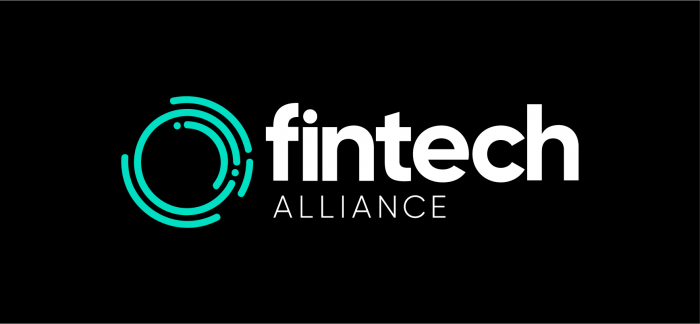A draft regulation reveals the contours of the legal framework for crypto-assets and blockchain technology for financial market infrastructure in the EU.
New legislative proposals on crypto-assets and DLT market infrastructure
The European Commission after consultation with various stakeholders has expedited its work on the Digital Finance package, aiming to enable and support digital finance in the EU. The first concrete actions within the Digital Finance package are legislative proposals, recently leaked to public, on:
- a pilot regime on distributed ledger technology market infrastructure (DLT Pilot Regime); and
- crypto-assets regulatory framework, known as the Regulation on Markets in Crypto-assets (MiCA).
Both proposals are aimed to remove obstacles to the application of new technologies and widely anticipated to be officially published by the Commission by the end of September.
DLT Pilot Regime – What is being proposed
The DLT Pilot Regime should allow for experimentation within a safe environment leading to the development of a secondary market for financial instruments in crypto-asset form. This might be especially relevant with regard to the EU initiative on the Capital Markets Union.
MiCA – What is being proposed
The MiCA Regulation aims to support the establishment of a sustainable crypto-asset ecosystem in the EU by providing legal certainty and harmonisation across national legislations. Importantly, it will address the regulatory issues of "stablecoins," being a controversial topic due to their potential threat to financial stability.
The current draft of the MiCA provides uniform requirements for crypto-asset issuers and service providers. It strives to capture a wide array of relations with its comprehensive definition of the crypto-asset.
"crypto-asset means a digital representation of value or rights, which may be transferred and stored electronically, using distributed ledger or similar technology."
The MiCA Regulation encompasses various requirements on transparency and disclosure, the operation, organisation and governance of crypto-asset service providers. Furthermore, it contains specific consumer protection rules and measures to prevent market abuse. It lays down different requirements depending on the type of crypto-assets:
- crypto-assets other than asset-referenced and e-money tokens;
- asset-referenced tokens; and
- electronic money tokens (e-money tokens).
In this regard, depending on their characteristics "stablecoins" can fall under the scope of asset-referenced tokens or e-money tokens.
Requirements for crypto-asset issuers
Crypto-asset issuers will be required to publish a harmonised information document known as a whitepaper. At the same time, MiCA provide some exemptions for small issuances of crypto-assets.
Similar to a bond prospectus, a whitepaper for asset-referenced and e-money tokens will require an approval by national competent authorities (NCAs). The NCAs will also supervise the issuers of crypto assets, unless they are designated as significant. In this case, the supervision of significant issuers is conferred to the European Banking Authority.
The MiCA is intended to require all issuers of crypto-assets to be incorporated in the form of a legal entity, which in case of asset-referenced tokens should be established in the EU. Furthermore, the issuer of the e-money tokens should be authorised as a credit institution or electronic money institution under the EU legislation.&
Other requirements for asset-referenced tokens would include:
- capital requirements;
- governance requirements;
- rules on conflicts of interest;
- rules on the stabilisation mechanism and the reserve of assets backing the asset-referenced tokens; and
- requirements for the custody of the reserve assets.
Additionally, the issuers will be obliged to safeguard the security, integrity and confidentiality of information.
To ensure consumer protection, there will be provisions requiring the issuer to disclose the rights attached to the asset-referenced tokens while the MiCA itself will establish minimum rights for holders of asset-referenced tokens.
Requirements for crypto-asset service providers
One of the most awaited events by the crypto-asset industry are the rules of the games for the crypto-asset service providers. The Commission intends to set out requirements for such specific services as:
- custody of crypto-assets;
- trading platforms for crypto-assets;
- exchange of crypto-assets for fiat currency or for other crypto-assets;
- execution of orders;
- placement of crypto-assets;
- reception and transmission of orders, and
- advice on crypto-assets.
The crypto-asset service providers would be mandated to receive authorisation and comply with some general requirements regarding prudential safeguards, organisational requirements, rules on the safekeeping of clients’ funds, rules on the information provided to clients, the obligation to establish a complaint handling procedure, rules on conflict of interests.
Important to note that credit institutions, investment firms, and payment institutions will have some exemptions from prior authorisation under MiCA for provision of crypto-asset services.
Entry into force and application
While the enactment of the proposals and their entry into force is uncertain due to political considerations, it is expected that the MiCA will need a phasing-in period, one and half years after the date of entry into force according to the draft. Provisions on e-money tokens and asset-referenced tokens may apply immediately upon its enactment. Given the status of the draft, preparatory requirements on behalf of the participants, a number of open issues and the political coordination in the legislative process, our estimate is that the MiCA Regulation will enter into force in 2023 rather than 2022.
Reetu Vishwakarma, (White & Case, Transaction Lawyer, Frankfurt) contributed to the development of this publication.
This publication is provided for your convenience and does not constitute legal advice. This publication is protected by copyright.
© 2020 White & Case LLP








